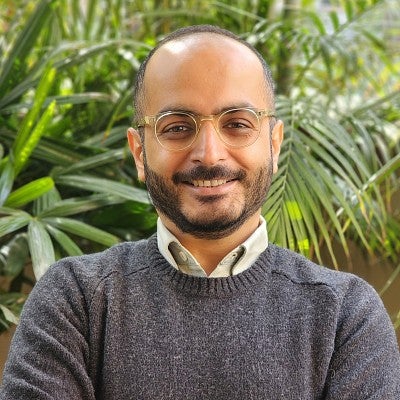
Name: Aditya V, Bahadur
Email: bahadur@climatecentre.org
Affiliation: Red Cross Red Crescent Climate Centre
Bio:
Dr. Aditya V. Bahadur is the Director of the Red Cross Red Crescent Climate Centre. Previously he was at the International Institute for Environment and Development, UK where he was Principal Researcher and Chair of the Research Strategy Team. Before this he has held senior positions with Oxford Policy Management, the Overseas Development Institute and Hyderus Cyf. He has published widely on climate and development issues, including in top tier academic journals and has contributed to the IPCC sixth assessment report (WG2). His book ‘Resilience Reset: Creating Resilient Cities in the Global South’ was published by Routledge in 2022.
Abstract:
Resilience Reset: Creating Resilient Cities in the Global South
Drawing on evidence from urban resilience initiatives around the globe, the presentation will make a compelling argument for a "resilience reset", a pause and stocktake that critically examines the concepts, practices and challenges of building resilience, particularly in cities of the Global South. In turn, the presentation will call for the world’s cities to alter their course and "pivot" towards novel approaches to enhancing resilience. The presentation will encourage researchers, policymakers, and practitioners to break out of existing modes of thinking and doing that may no longer be relevant for our rapidly urbanising and dynamic world. The presentation draws on the latest academic and practice-based evidence to provide actionable insights for cities that will enable them to deal with multiple interacting shocks and stresses."
Project Description:
Drawing on evidence from urban resilience initiatives around the globe, the presentation will make a compelling argument for a "resilience reset", a pause and stocktake that critically examines the concepts, practices and challenges of building resilience, particularly in cities of the Global South.
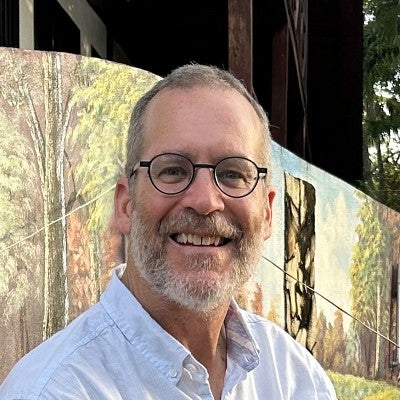
Name: David Bernell
Email: david.bernell@oregonstate.edu
Affiliation: Oregon State University School of Public Policy
Bio:
David Bernell is an Associate Professor of Political Science in the School of Public Policy at Oregon State University. His research and teaching focus on international relations and US energy policy. Prior to his work at Oregon State University, Dr. Bernell served as an appointee in the Clinton Administration with the US Office of Management, and with the US Department of the Interior.
Abstract:
The American Model for Global Growth
The globalized market that has engaged countries in an increasingly multifaceted trading and financial system was accelerated at a rapid pace by the economic program advanced by the United States after World War II. This global economic system has been considered responsible for significant economic advances in terms of global growth and moving hundreds of millions of people out of poverty. It has also been seen as responsible for a succession of global economic crisis over the decades, as well as worldwide environmental degradation in the form of overuse of resources and pollution."
Project Description:
The global trading and financial system championed by the United States after World War II has helped to bring about rapid economic growth throughout much of the world. However, it has also contributed greatly to environmental degradation. This presentation addresses the contradictions in the economic project that has comprised American global economic policy for decades.
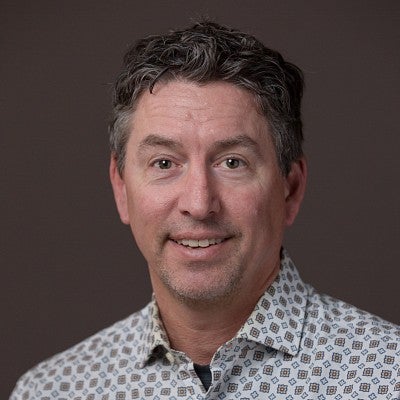
Name: Max Boykoff
Email: boykoff@colorado.edu
Affiliation: Professor & Chair, Department of Environmental Studies; Fellow, Cooperative Institute for Research in Environmental Sciences
Bio:
Max is a Professor in the Environmental Studies department at the University of Colorado Boulder. He is also a Fellow in the Cooperative Institute for Research in Environmental Sciences. Max has ongoing research interests in science and environmental communications, science-policy interactions, political economy, business and the environment (with negotiations, marketing and advertising concentrations). He has experience working in several country contexts, and is a co-author and editor of seven books and edited volumes, along with many articles, reports and book chapters. Max also leads the Media and Climate Change Observatory (MeCCO) while he co-Directs Inside the Greenhouse.
Abstract:
In 2024, conversations about climate change in our lives and at the science-policy interface – as pathways to engagement and action – can get stuck as they get mired in conflict, partisanship, and polarization. This talk will highlight what kinds of climate communications work where, when, why, how, and under what conditions in interlocking communication ecosystems to enact productive and positive change. I will touch on news-based communications about climate change, and then explore the power of creative climate communications at multiple scales and contexts in order to more effectively influence attitudinal and behavioral changes.
Project Description:
This presentation will address how we can overcome unproductive conflict and enact positive social change by meeting people where they are while inspiring engagement and action on climate change.
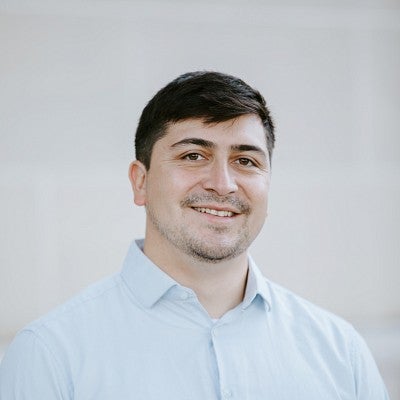
Name: Michael Charles
Email: mtc58@cornell.edu
Affiliation: Biological and Environmental Engineering, Cornell University
Bio:
Michael Charles is Diné, a citizen of the Navajo Nation, and an assistant professor in the Department of Biological and Environmental Engineering at Cornell University. His research focuses on computational sustainable design and community engagement, particularly with Indigenous communities. Michael is also an affiliate faculty of the American Indian and Indigenous Studies Program and a Cornell Atkinson Center for Sustainability Faculty Fellow. Further, he works within UN Climate Negotiations to advocate for Indigenous rights, leadership, and self-determination.
Abstract:
The Potential Risks of Pursuing Carbon Neutrality on Indigenous Rights and Safety. Climate change poses urgent threats that call for rapid transitions towards renewable energy that have resulted in the development of climate action plans across all scales of governance and management. Often, we equate sustainability and even climate justice with reductions in carbon emissions, however, vulnerable and marginalized communities might have a different perspective. In the context of anticipated rapid technological transitions, we have analyzed the life cycle impacts of energy source projections in the United States and compared the increased demand of subsurface materials with maps of known mineral deposits. As these energy transitions will require increased mining and resource extraction, we explore which communities will be impacted, dispossessed, and potentially forcibly migrated. Given the history of Indigenous dispossession in the US, are Indigenous rights and safety at risk as we emphatically pursue a clean energy future?
Project Description:
This presentation will analyze the risks of energy transition scenarios by first presenting a life cycle analysis on the US Energy Information Administration's future electricity use projections. After quantifying the subsurface resources needed in these scenarios, we will compare the increased demands with maps of known mineral deposits in the United States and discuss the implications for Indigenous communities.
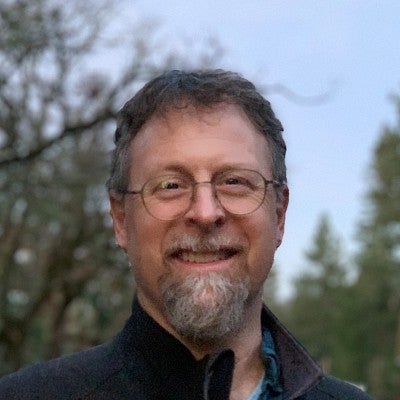
Name: Michael Dreiling
Email: dreiling@uoregon.edu
Affiliation: Department of Sociology, University of Oregon
Bio:
Michael C. Dreiling is a Professor of Sociology at the University of Oregon specializing in political and environmental sociology. He is author of two books, numerous research articles and chapters, and is presently completing two books, one on the topic of Dirty Energy. His documentary film series with Matthew Eddy includes an award-winning feature-length film on Costa Rica’s demilitarized society – A Bold Peace – and is now proceeding with a three-part series on Japan’s transformation from a militaristic empire to a relatively pacifist democracy."
Abstract:
Power Structures of Dirty Energy
In this presentation, Professor Dreiling explores two cases of dirty energy, as drawn from his book draft, Dirty Energy, to answer why it has been so difficult for nations to transition from these highly toxic sources toward cleaner and renewable sources of energy. He offers a sociological look at the elite networks behind the Japan’s nuclear energy sector and the US’ fossil fuel sector, exposing the webs of deception and denial that suppress cleaner energy alternatives and maintain national priorities for their high-risk products. In both cases, we see that a major obstacle to a cleaner energy transition results from dirty energy’s massive efforts to conceal and deny the negative consequences of their industry using a vast echo chamber and public relations infrastructure that includes think tanks, policy groups, media networks, and lobbying operations. A cleaner energy transition is not just about technology, but the socio-political dominance of dirty energy."
Project Description:
In this presentation, Professor Dreiling offers a sociological look at the elite networks behind the world’s most powerful dirty energy industries, exposing the webs of deception and denial that suppress cleaner energy alternatives and maintain our collective dependencies on their high-risk products. A cleaner energy transition is not just about technology, but the socio-political dominance of dirty energy.

Name: Lauren Eastwood
Email: eastwole@plattsburgh.edu
Affiliation: State University of New York, Plattsburgh
Bio:
Dr. Lauren Eastwood is Professor of Sociology at SUNY, Plattsburgh, where she teaches courses in climate/energy, international development, and environmental sociology. Between 2021 and 2024, Dr. Eastwood was a Senior Researcher and Policy Field Lead (Climate Change and Sustainability) at the Centre for Global Cooperation Research, University of Duisburg-Essen, Germany. She has conducted ethnographic research within the context of UN environmental policy-making fora for 25 years, and is also investigating the increased criminalization of anti-fossil fuel activism.
Abstract:
Promises and Pitfalls of UN Climate Negotiations
Project Description:
Based on ethnographic data collected at meetings of the UNFCCC since 2009, this presentation identifies the primary impediments to governments' abilities to meet targets, and highlights the intersection between climate-based policies and other UN fora (such as the Convention on Biological Diversity and the United Nations Permanent Forum on Indigenous Issues).
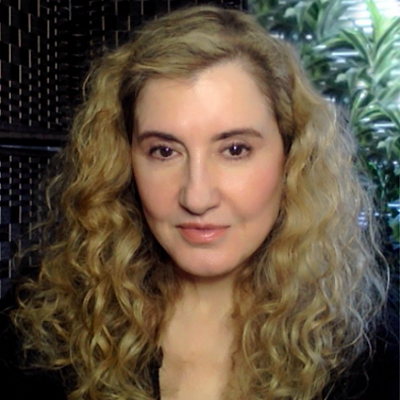
Name: Dr. Marisa O. Ensor
Email: moe2@georgetown.edu
Affiliation: Georgetown University
Bio:
Dr. Marisa O. Ensor is climate security specialist with a background in the socio-environmental dimensions of climate change, environmental extremes/disasters, insecurity, and displacement. Combining science (environmental anthropology) and rights-based approaches, her work examines intersectional, Indigenous, and local perspectives on culture-nature interactions. She has recently completed a participatory, multi-disciplinary project on climate adaptation in 5 countries, focusing on the co-identification of context-specific solutions. The linkages between water (both freshwater systems and marine environments) and climate change constitute a central dimension of this project.
Abstract:
The Risks of Gender-blind Climate Security Action: Climate change is widely recognized as one the greatest threats to peace and security in the 21st century. The adverse impacts of climate change exacerbate other risk factors, especially in already fragile contexts. In turn, these factors magnify pre-existing economic, social, or political drivers of insecurity. Women and girls, and members of already vulnerable populations are thus placed on the frontlines of multiple and interrelated crises. The intersection of gender and other dimensions of identity plays a critical role in determining how people experience, respond to, and recover from the adverse effects of climate change. Conversely, interventions around natural resources, environment and climate change provide significant opportunities to empower women politically and economically, and to strengthen their contributions to conflict prevention and peacebuilding in conflict-affected countries. We must find ways to promote their meaningful participation without increasing their already disproportionate burdens or exposing them to unnecessary risks.
Project Description:
The intersection of gender and other dimensions of identity plays a critical role in framing how people experience, respond to, and recover from the adverse consequences of climate insecurity and conflict. Women and girls, especially those in already fragile contexts, are thus placed on the frontlines of multiple and interrelated crises. This presentation discusses the risks of gender-blind climate action and suggests strategies to promote their meaningful participation in environmental peacebuilding without increasing their already disproportionate burdens or exposing them to unnecessary risks.
Name: Jean Faye
Email: jfaye@uoregon.edu
Affiliation: UO Honors College
Bio:
Instructor of Natural Sciences
Abstract:
Climate Adaptation at the Sahara’s Edge: Indigenous Agroecosystems and Food Security in Toucar, Senegal
Some Serer farmers in the peanut basin region of Senegal are adapting to unprecedented climate change by employing indigenous agro-ecosystems based on tree-crop-livestock and rotating fallow systems that maintain and raise agricultural productivity and enhance soil fertility through the promotion and development of nutrient cycling. Other farmers are transitioning to new forms of agricultural production – fertilizer, pesticide, and title, completely displacing the collective custodianship held by lamanes of pastureland, fallow practice, rotation and nitrogen fixing trees to ensure soil fertility. However, there hasn’t been enough income to switch fully to the new forms of agriculture; plus, climate change: inadequate and unpredictable rains, eroded soils, cash crop productivity are making the conversion difficult. Traditional ecological knowledge (TEK) is saving remaining commodity production via ad hoc revivals of pasturing, fallow, rotation and tree protection. We note that subsistence form of production buttresses failing commodified forms.
Project Description:
PowerPoint presentation showing how farmers in the West African Sahel are reinventing themselves to face recurring changing weather patterns that are expected to become more destructive.
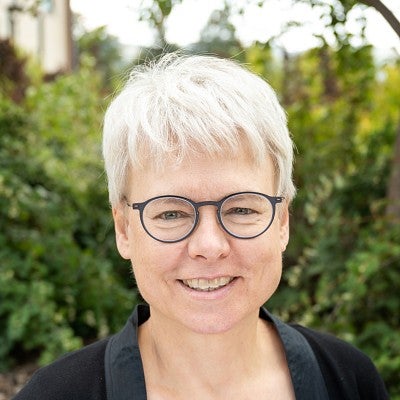
Name: Katharina Gerstenberger
Email: katharina.gerstenberger@utah.edu
Affiliation: University of Utah
Bio:
Katharina Gerstenberger is professor of German in the Department of World Languages & Cultures at the University of Utah. Her work is in contemporary German literature and culture, and in the Environmental Humanities. She is the author of Truth to Tell: German Women’s Autobiographies and Turn-of-the-Century Culture (2000) and Writing the New Berlin: The German Capital in Post-Wall Literature (2008). She co-edited three volumes and serves as editor of German Studies Review. She is completing a monograph on nuclear narratives.
Abstract:
Exclusion Zones: Depictions of Nuclear Disaster in the Works of German-speaking Artists from the 1950s to the 2020s
Comparable to climate change, nuclear disasters push against the limits of human understanding because of their scale, their unpredictable consequences, and the time frames they involve. Fear of radioactive contamination, whether caused by reactor accidents, leaks in waste storage, or the procurement of radioactive material, guides much of the negative response to nuclear power. Yet nuclear energy is also promoted as a solution to climate change. Germany famously retired its nuclear power plants under the impression of the Fukushima disaster. In my talk, I look at three works of art from German-speaking countries about nuclear catastrophe from different periods and with different aesthetics that attempt to depict the immensity of nuclear disaster. Even if their influence is hard to measure, such works reflect and shape attitudes toward issues like the use of nuclear power and play into decision making at the national level."
Project Description:
Germany famously retired its nuclear power plants under the impression of the Fukushima disaster. In my talk, I look at three works of art from German-speaking countries about nuclear catastrophe from different periods and with different aesthetics that attempt to depict the immensity of nuclear disaster. Even if their influence is hard to measure, such works reflect and shape attitudes toward issues like the use of nuclear power and play into decision making at the national level.
Name: Todd Jarvis
Email: todd.jarvis@oregonstate.edu
Affiliation: Institute for Water & Watersheds at Oregon State University
Bio:
Todd Jarvis has worked 40 years in the groundwater engineering industry. He works at the Institute for Water & Watersheds at Oregon State University, one of the 54 Water Resources Research Institutes funded by the Water Resources Research Act. Todd is licensed as an Oregon-Certified Engineering Geologist and Oregon-Certified Water Right Examiner. He is a professional mediator with over 20 years of experience in conflict resolution for groundwater. Todd teaches Environmental Conflict Resolution at the University of Oregon Law School.
Abstract:
Contesting Hidden Waters: Conflict Resolution for Groundwater and Aquifers
Groundwater is the most extracted raw resource on the planet approaching 1,000 cubic kilometers per year. Groundwater is unseen and difficult to monitor. Groundwater value and vulnerability is rarely discussed by the public and policy makers until depletion or contamination is difficult to replenish or remediate. Groundwater conflicts span many domains and scales. Societal engineering connecting the fundamentals of engineering to other professions improve technical and policy responses to groundwater depletion and contamination by integrating new conceptual models, untapped unconventional sources, and underutilized business practices. Pore space diplomacy is an adaptation strategy to climate change because aquifer storage can be reused many times."
Project Description:
There is a lot of mystery and mythology associated with groundwater which leads to conflict and adversarial collaboration.
The water business sector is awash in "big data" collected and stored on behalf of local, state, national, and international water agencies and public banks which can both alleviate and exacerbate conflict.
Societal engineering will improve groundwater utilization and minimize adversarial collaboration through collective aquifer governance, scientific mediation, leadership, serious gaming in water, and the Internet of Water."
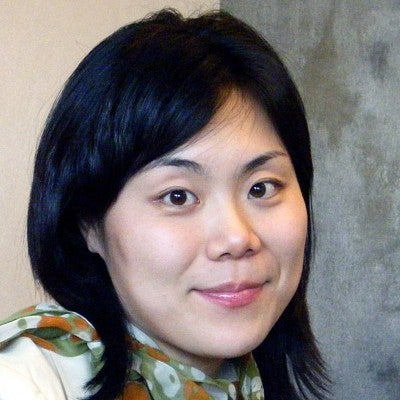
Name: Yekang Ko
Email: yekangko@uoregon.edu
Affiliation: University of Oregon
Bio:
Yekang Ko is an Associate Professor of Landscape Architecture. Her research focuses on sustainable energy landscapes, green infrastructure, and climate resilience. She teaches courses related to urban sustainability and landscape planning and analysis and leads community service-learning projects with local and international partners. She co-founded the Landscape for Humanity (L4H) Lab and directs the APRU Sustainable Cities and Landscapes Hub. Her work has been recognized with multiple awards, including the CELA Faculty Excellence in Service Learning (2024) and Research (2020) Awards.
Abstract:
Growing Resilience: Engaging Unhoused Communities in Urban Greening and Climate Action
The Landscape for Humanity initiative at the University of Oregon addresses homelessness, a critical issue in Eugene, which has one of the highest per capita homeless populations in the U.S. Professor Ko and her students collaborate with transitional housing sites like Opportunity Village Eugene (OVE) to improve green infrastructure, as the site currently have minimal tree canopy coverage. Since 2019, they have launched a community tree nursery to enhance green amenities and generate sustainable revenue through tree sales. This project empowers residents by involving them in co-designing their communities, providing skill training, and connecting them with local students and groups. Their efforts contribute to urban tree equity and climate resilience in Eugene, while also supporting the broader community."
Project Description:
Growing Resilience: Engaging Unhoused Communities in Urban Greening and Climate Action
This talk explores how the Landscape for Humanity initiative engages unhoused communities in Eugene to improve green infrastructure at transitional housing sites. By co-designing a community tree nursery, the project enhances living conditions, provides skill training, and supports urban tree equity and climate resilience efforts."
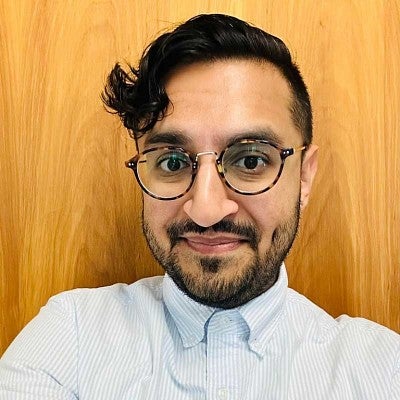
Name: Ali Malik
Email: alimalik@uoregon.edu
Affiliation: University of Oregon, Department of Global Studies
Bio:
Ali Malik is an assistant professor in the Department of Global Studies at the University of Oregon. He earned a Ph.D. in Socio-legal Studies from York University in 2022 and an MA in International Human Rights Law from the American University in Cairo. His current research focuses on the introduction of big data technologies in Indian agriculture and food systems, as part of a broader project that explores the intersections between technology, capitalism, and agrarian politics in the Global South.
Abstract:
Incorporating Agriculture into 'Green' Transitions: 'Dataist' States, Technoscientific Capitalism, and Agrarian Dispossession in the Majority World
Project Description:
This talk will explore the introduction of data-driven carbon farming as an element of 'green' agricultural transitions in Majority-World states, such as India and Kenya. It will argue that such projects must be understood in the context of evolving modes of postcolonial statecraft, shifting geopolitics, and novel forms of capital accumulation, with potentially dire consequences for both smallholder agrarians and climate justice at large.
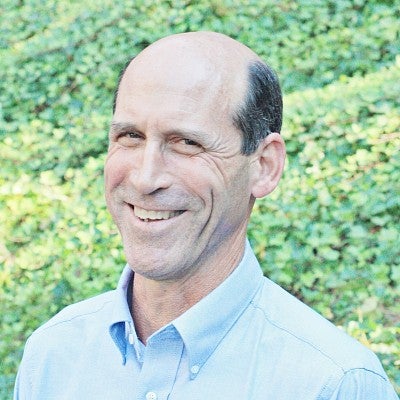
Name: Ronald B. Mitchell
Email: rmitchel@uoregon.edu
Affiliation: Dept of Political Science and Program in Environmental Studies, University of Oregon
Abstract:
After the war: “Climate-attentive post-war reconstruction” in Ukraine
Wars are disasters that destroy social and material infrastructures. But post-war reconstruction of communities offer “windows of opportunity” that may provide a more favorable context to adopt “climate-attentive” policies. They allow building “climate-attentive” infrastructures rather than merely re-building the pre-existing “climate-ignoring” ones. But taking advantage of these “windows of opportunity” to promote climate-attentive policies requires a) policies that also promote dominant security and economic objectives as well as b) careful pre-planning that addresses both climate concerns, other concerns, and the urgency of reconstruction.
Project Description:
Wars are disasters that destroy social and material infrastructures. But post-war reconstruction of communities offer “windows of opportunity” that may provide a more favorable context to adopt “climate-attentive” policies. They allow building “climate-attentive” infrastructures rather than merely re-building the pre-existing “climate-ignoring” ones. But taking advantage of these “windows of opportunity” to promote climate-attentive policies requires a) policies that also promote dominant security and economic objectives as well as b) careful pre-planning that addresses both climate concerns, other concerns, and the urgency of reconstruction.
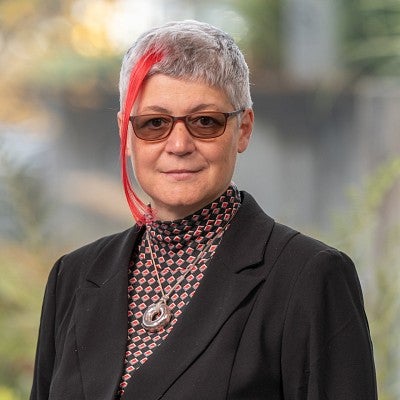
Name: Barbara Muraca
Email: bmuraca@uoregon.edu
Affiliation: University of Oregon
Bio:
From Planetary to Societal Boundaries: collective self-limitation as "good life for all"
Abstract:
The concept of planetary boundaries, introduced by Rockström et al. in 2009, identifies a “safe operating space for humanity” within 9 thresholds representing critical processes which together maintain a stable and resilient Earth. While innovative and helpful, the model reproduces a technocratic framework that considers Earth as a globe looked at from an 'astronaut point of view.' Rooted in the Critical Social Sciences and Humanities, the idea of societal boundaries, instead, inverts the perspective from given external limits to processes of collective autonomy and political self-limitation and focuses on collectively defined thresholds as conditions for a “good life for all.” In asking what kind of worlds “we” want to live it is imperative to address how the “we” participating in the deliberation can be constituted, and how the conditions for well-being or a good life are to be expressed in concrete historical moments and contexts beyond a solely Western understanding of prosperity.
Project Description:
Reversing the image of Planetary Boundaries, the idea of Societal Boundaries centers collective autonomy and political self-limitation and focuses on collectively defined thresholds as conditions for a “good life for all.”
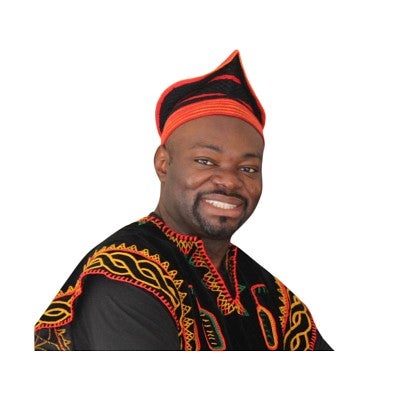
Name: Bernard Ngalim
Email: ngalimb@proton.me
Affiliation: Environmental Law Alliance Worldwide
Bio:
Business and human rights researcher working at the intersection of law, environmental protection, and community protection.
Abstract:
Cameroon needs an Agtech legal framework to help small-scale farmers adapt to climate change?
A legal framework that encourages the development of agricultural technology (Agtech) to support small-scale farmers in Cameroon is relevant. Small-scale farmers in Cameroon are facing significant challenges related to climate change and energy sources, and Agtech can provide solutions to help small-scale farmers. While small-scale farmers face such challenges, multinational and large-scale agricultural companies currently invest in Agtech to adapt to the effects of climate change and energy deficiencies. In light of this, small-scale farmers risk falling out of food production, thereby threatening food security in Cameroon. Additionally, they lack access to the necessary technology to adapt to the effects of climate change, which results in the loss of their food sources and resources to large-scale companies. With developments in Agtech, supporting small-scale farmers through legal and policy reform will adapt to climate change, understand market trends, improve their energy sources, and continue producing food to promote food security. This chapter will review the legal implications of developing Agtech in Cameroon. Next, I shall explore the importance of the government promoting Agtech for small-scale farmers. The chapter shall also explore how mandating open-source Agtech and its accessibility to small-scale farmers will enhance small-scale farmer output in Cameroon. The importance of small-scale farmer data cooperatives will also be reviewed in light of this chapter
Project Description:
Agricultural technology is expensive, and small-scale farmers need help to afford it. The government should require multinational companies to provide open-source technology to help small-scale farmers adopt new technologies as they adapt to climate change. Funding agricultural startups that work with small-scale farmers will provide the necessary resources to advance climate change adaptation and avoid climate conflicts.
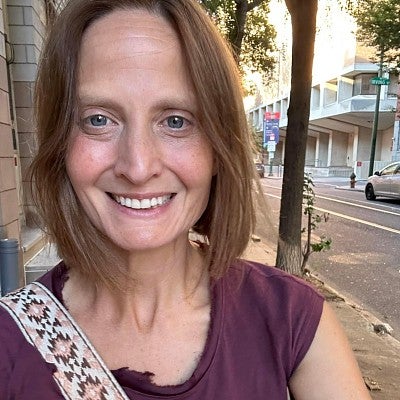
Name: Rachael Shwom
Email: shwomrac@sebs.rutgers.edu
Affiliation: Department of Human Ecology, School of Environmental and Biological Sciences, Rutgers University
Bio:
Rachael Shwom is Professor in the School of Environmental and Biological Science’s Department of Human Ecology and Chair of the Department of Human Ecology. She conducts research that links sociology, psychology, engineering, economics, and public policy to investigate how social and political factors influence society’s responses to energy and climate change. Rachael is currently PI on a collaborative National Science Foundation Grant “Responses to complex disruptive events: Cognition in a socio-political context.“ She is a member of the National Academy of Sciences Committee to Advise the U.S. Global Change Research Program and a co-author for the 5th National Climate Assessment’s Chapter on Social Systems and Justice.
Abstract:
Perspectives on Uncertainty and Responses to Climate Change
Sorting through what we know about climate change and its impacts and how various responses will play out is a challenging task for decision-makers and the public alike - particularly in our politicized environments. There are things we know for certain - for example - carbon dioxide creates a greenhouse effect. There is true uncertainty - things we don't even know we don't know. There are extensive variations in the level of certainty we have about various pieces of the human-climate system. There is also manufactured uncertainty - the intentional efforts of powerful parties to emphasize scientific uncertainty and question the existence of climate change. And arguably - there is manufactured certainty in efforts to put numerical estimates to climate impacts to enable the management of climate change. These uncertainties are then used in different ways to argue for different responses to climate change. This talk will discuss these characteristics of uncertainty and examples of the different ways we handle uncertainty in decision-making results in conflicting outcomes."
Project Description:
Climate change is a complex multi-faceted issue with dimensions of both inherent and manufactured uncertainty. How can we both know so much about climate change and also still have so many unanswered questions? And how does this landscape of uneven knowledge and certainty impact climate decision-making?
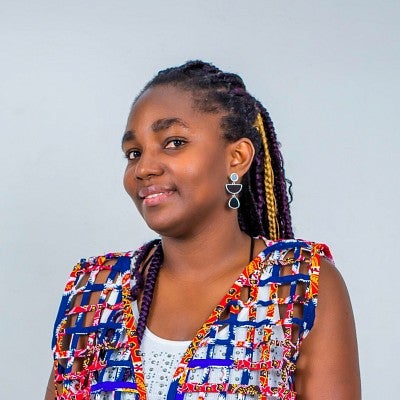
Name: Rhodalyn Tetteh
Email: giftyrhodalyn@gmail.com
Affiliation: Environmental Studies, UO
Bio:
Rhodalyn Tetteh (PhD candidate, ESSP) is an Interdisciplinary Research student in Environmental Sciences and a Fulbright Program alum (From Ghana). Her research focuses on Capital Accumulation exhibited through the profiteering of Ecological systems as seen in plastic production. In the lab, Rhodalyn tracks microplastic transfer in the marine food chain using marine organisms, and in the field (West Africa), she researches fisherfolks' interaction with plastic at sea and its implications on their livelihoods.
Abstract:
Plastics and Climate Change, an Inseparable Love Affair
Plastics were revolutionary when first invented because they solved a problem; yet, in recent years, their manufacture and use renders them ubiquitous, causing negative effects globally. Plastics can aggravate climate change in many ways. The production of plastics necessitates using fossil fuels and a significant amount of energy. Plastic production also produces greenhouse gas emissions [1], biodiversity destruction, and ecosystem inefficiency, making them less resilient to climate change. Earthworms, for instance, play a critical role in improving soil carbon resilience [2], and the presence of (micro)plastics in soil alters the health of earthworms. In the marine environment, plastics can interfere with carbon fixation [3] and sequestration, impacting the ocean's ability to store carbon. Plastics can further exacerbate the climate-induced stress on the socioeconomic livelihoods of subsistence fisherfolks. Should the trend in plastic production and consumption remain the same, we can further strain Climate change effects and make mitigation measures futile.
Project Description:
Plastics have an intricate relationship with climate change. The production and disposal of plastics can worsen climate change effects due to the strain on certain ecological systems and nutrient cycling. To improve climate resilience, there needs to be a change in the current trend in all stages of the plastic lifecycle.
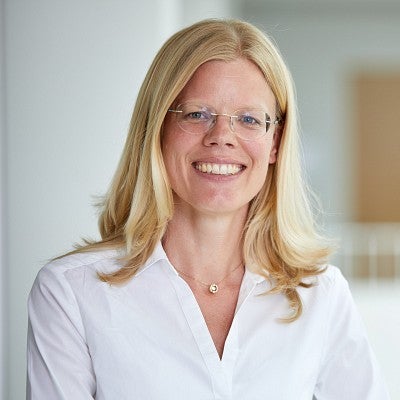
Name:Annika Wilmers
Email: a.wilmers@dipf.de
Affiliation: Frankfurt UAS
Bio:
Dr. Annika Wilmers is Professor for Societal Responsibility at the Frankfurt University of Applied Sciences and affiliated researcher at the DIPF | Leibniz Institute for Research and Information in Education. Her research focusses on societal transformations and their impact on individuals and subgroups within societies in different regional, national or international settings. In this context she is also particularly interested in the role of science within societies and the development and application of evidence-based research methodology.
Abstract:
Climate clashes as generational conflicts? An educational perspective on protest activities of young people
The presentation analyzes how climate protest activities affect societies by looking at current protest groups of young people with a special focus on the case of Germany. A new phase of activities started with the appearance of “Fridays for Future” - first in Sweden in 2018 and then globally. The presentation examines the characteristics of this movement before turning to the ongoing debate on radicalism within climate protests. As one of the more visible signs of this discourse the climate protest group “The Last Generation” emerged - referring to a quote originally used by Barack Obama to label the current generation as the last one before reaching critical tipping points. The contribution asks to which degree these protests also point to a conflict between different generations and why this matters from an educational perspective, for example with regard to legal questions, safety concerns or the rhetoric employed."
Project Description:
The presentation examines different types of current climate protests of young persons and asks to which degree these protests reflect a conflict between different generations. To this end, specific protest forms and their implications for education will be discussed.
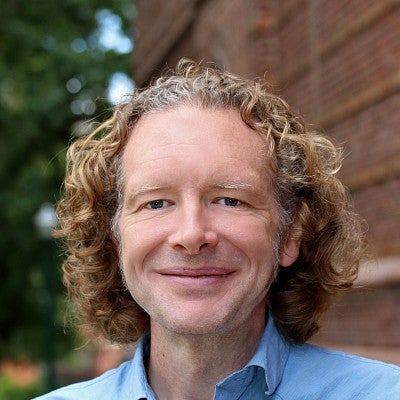
Name: Richard York
Email: rfyork@uoregon.edu
Affiliation: Sociology and Environmental Studies
Bio:
Richard York is Director of Environmental Studies and a Professor of Sociology and Environmental Studies. His research examines environmental crises, animal studies, and science and technology.
Abstract:
Energy Transitions and Unintended Consequences
Transitioning away from fossil fuels requires the production of energy from non-fossil sources. However, quantitative analyses and historical assessments of previous shifts in energy use indicate that the expansion of non-fossil energy sources – in the absence of direct efforts to suppress fossil fuel extraction and challenge the power of the fossil fuel industry - may not appreciably contribute to a decline in fossil fuel use and may have a variety of unintended consequences. These analyses suggest that a full energy transition to cleaner energy sources requires not only technological developments but changes in economic structures and political power relationships."
Project Description:
The implementation of "green" technologies often has unintended and unanticipated consequences due to social structural forces. Thus, a energy transition away from fossil fuels requires social and political change, not only the development of cleaner energy sources.
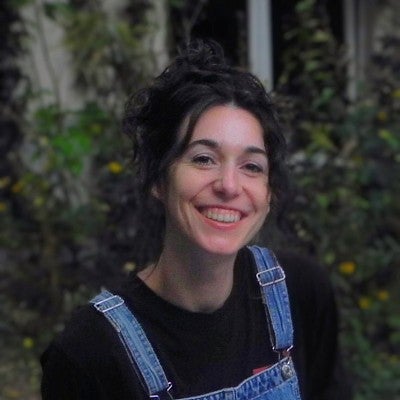
Name: Lena Von Zabern
Email: lenavzabern@gmail.com
Affiliation: Independent Researcher
Bio:
Lena von Zabern is an independent researcher and holds an M.A. from Universitat Pompeu Fabra Barcelona. Her research centers on climate justice, climate change discourse, media framing, social protests, and global inequality. She also works as Communications Officer at the United Nations World Food Programme (UNWFP) in Berlin.
Abstract:
Framing the Future: Media, Power, and the Fridays for Future Movement
Six years after the start of the Fridays for Future protests, the media continues to play a key role in raising public and political awareness about children's climate rights and the global North's responsibility in climate policy. However, how the climate story is told in the media often remains ambiguous. Drawing on media framing theory (Entmann 1993) this presentation offers a review of German and international press coverage of the Fridays for Future protests from 2018–2021. While early reporting followed traditional protest paradigms, climate change is increasingly framed through the lens of generational and geographical inequality. The intersection of the global climate crisis with Covid-19 and the impacts of the war in Ukraine, but also other justice movements, may further universalize an emerging global justice framing within the Fridays for Future discourse."
Project Description:
When Greta Thunberg and the Fridays for Future movement took to the streets in 2018, they didn’t just spark a protest—they ignited a global conversation about climate injustice between generations. Since children cannot participate directly in political decision-making, the mass media played a crucial role in representing their demands for a livable future. But the media is often prone to reflect existing political and economic power structures. So, how do they frame a protest that directly challenges those systems? This presentation critically examines how the Fridays for Future protests were portrayed in the media from 2018 to 2021, unraveling the narratives we tell ourselves about the future of our planet—and our role in shaping it."

